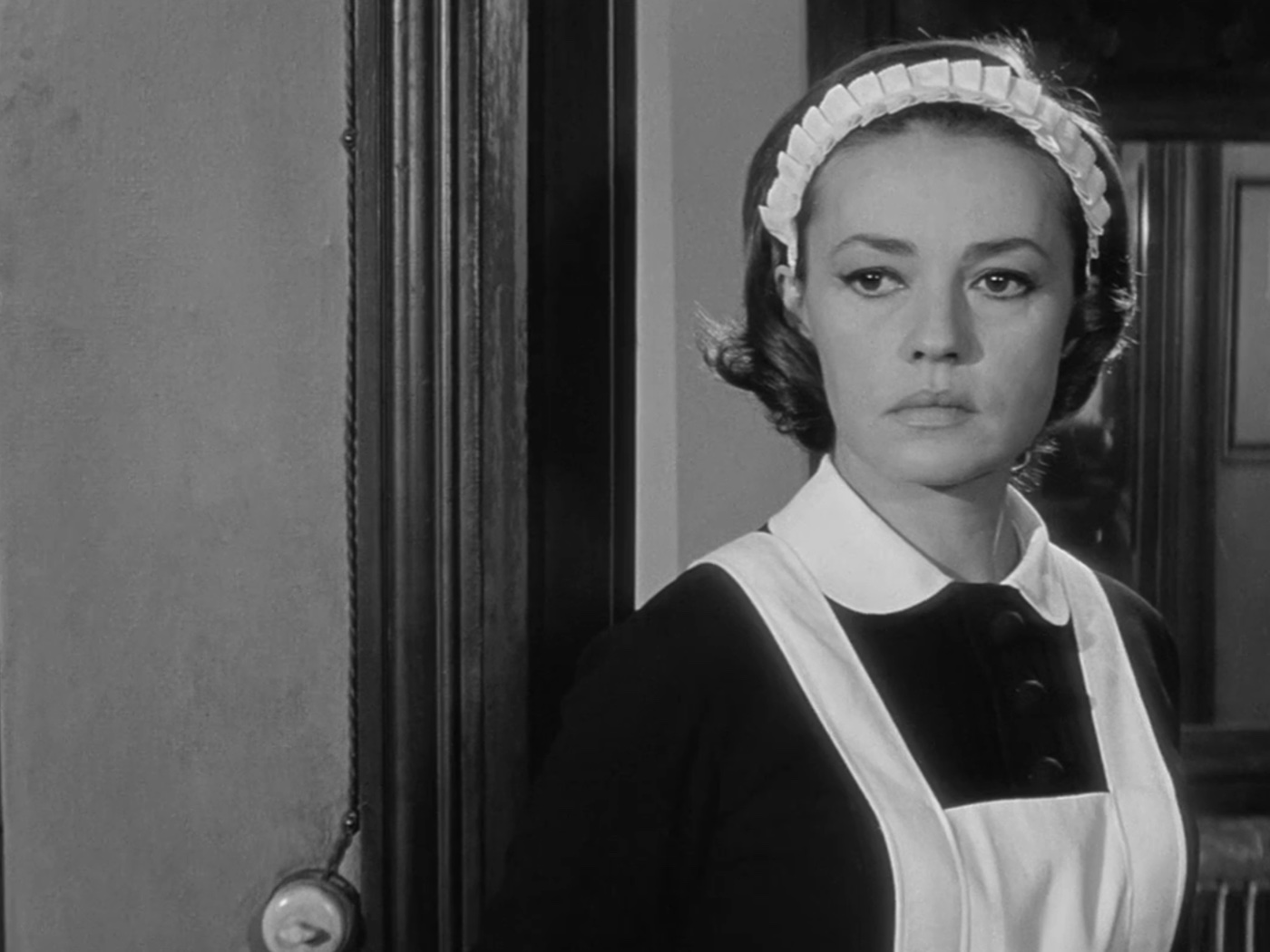
Hired as a maid by a rich family in Normandy, Celestine is forced to undergo the unpleasant habits of her insufferable hosts. Their obsessions and perversions lay bare the right-wing, fascist worldview of the provincial bourgeoisie in 1920s France.
“Let us return to an interesting word: naturalism. Not as an aesthetic style – for Buñuel’s so-called transparency or simplicity in the means of his staging and cutting is every bit as complex and cagey as Fritz Lang’s, and uses a similar syntax of reframings and body-choreography – but as a literary, cultural and philosophical heritage. In the eighth chapter of Cinema 1: The Movement-Image, Gilles Deleuze yokes Buñuel to that Zolaesque tradition most popularly embodied in film history by Erich von Stroheim: all humans are animals, subject to their basest drives, and in that way irredeemably ‘stupid’ (in the philosophical sense!), taking whatever fragile order they have managed to erect around them down into the entropic depths of degradation and decay.
This is, essentially, Buñuel’s Weltanschauung in The Diary of a Chambermaid: there is no Utopian moment of revolution, reform or righteous justice; the action follows the grim, inexorable logic of what Deleuze calls ‘the steepest slope’.”
Adrian Martin1
François Forestier: Pourquoi Buñuel vous a-t-il choisi pour Le Journal d’une femme de chambre?
Jeanne Moreau: Parce que je buvais du vin rouge. J’étais dans le Midi, il est descendu me voir, on a déjeuné, et il m’a vu boire du bordeaux: « Ça, c’est la femme qu’il me faut! »
Jeanne Moreau in conversation with François Forestier2
“Buñuel did not want mystery to emanate from a well-contrived chiaroscuro; from the timely creaking of a door, from blurring, from slow motion. He thoroughly distrusted every kind of cinematographic effect, rejecting it as facile, arty…. Rejecting virtuosity implies that you are sure of the power of what you are showing.”
Jean-Claude Carrière3
- 1Adrian Martin, “Take No Prisoners,” 2010.
- 2François Forestier, « Jeanne Moreau: Les zigzags du destin, » Téléobs, July 2017.
- 3Jean-Claude Carrière, The Secret Language of Film (New York: Pantheon, 1994), 40.

